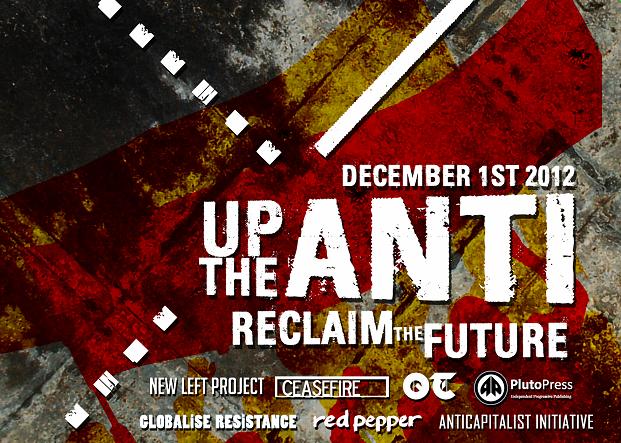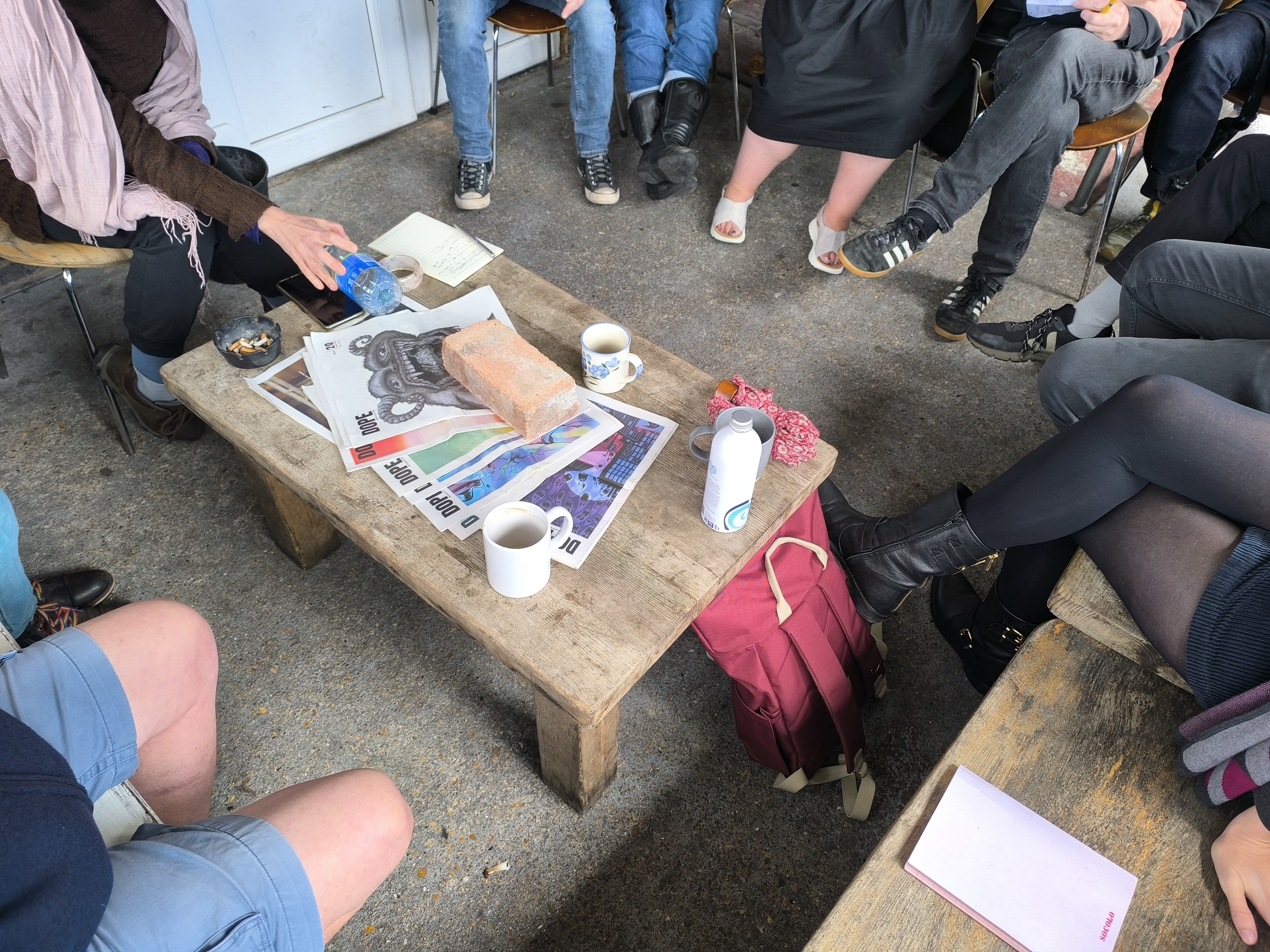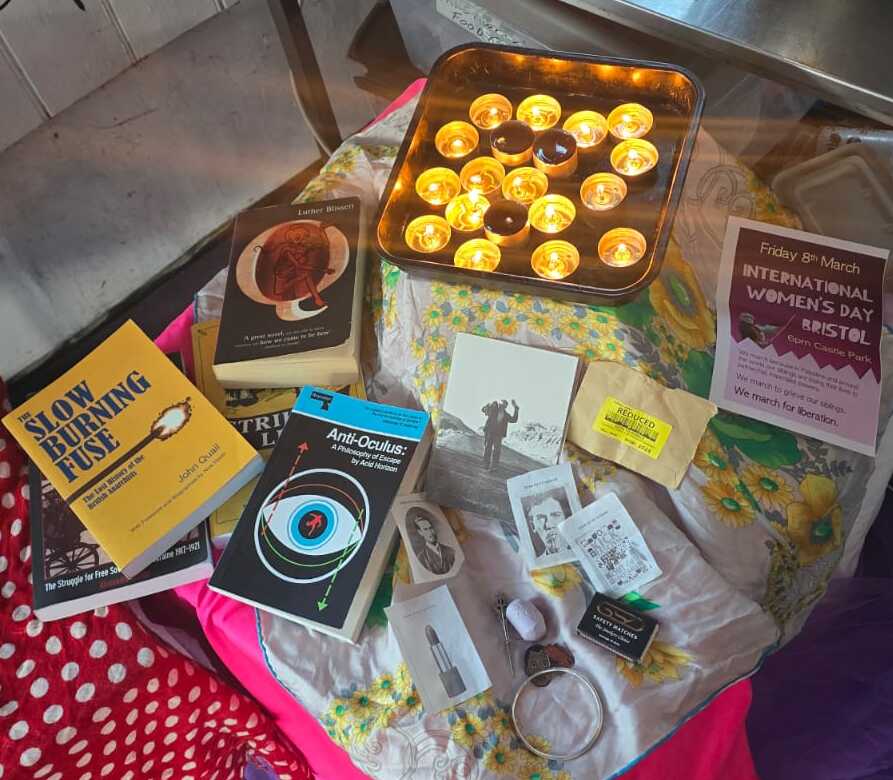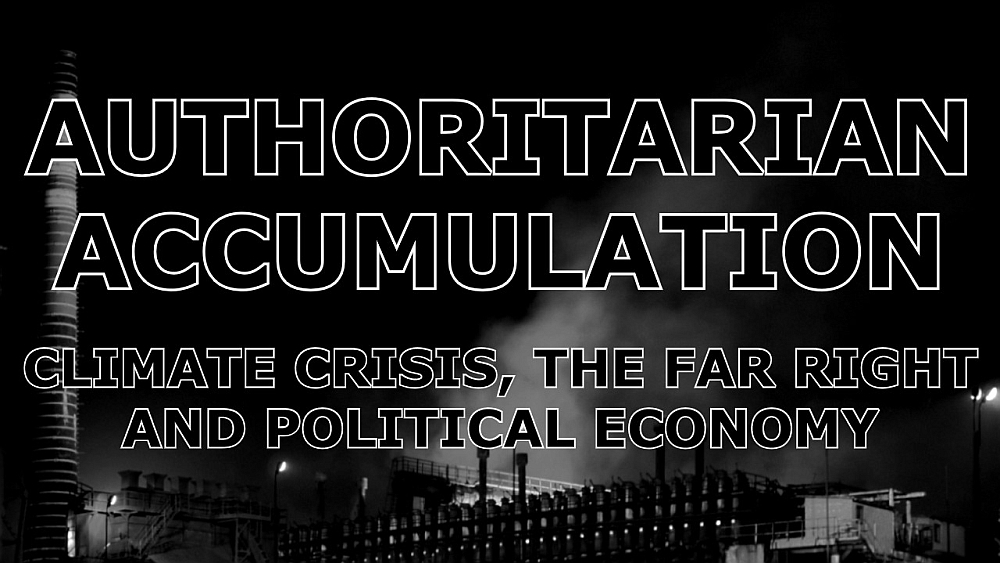Plan C were one of many groups present at the Up The Anti conference on 1st December, an event hosted by the Anticapitalist Initiative (ACI) with the aim of creating a space for discussion amongst various traditions of the radical left. Although there are some criticisms to be made of the day and problems to be overcome for any future assemblies of the broad, anti-authoritarian left, a coming together like this, largely free from point-scoring and recruitment, seems long overdue.
The day was attended by around 300 people of various stripes and it was interesting to note the composition of those present and the networks it seemed to draw on. With so many organisations sponsoring the event and having members involved in panels, workshops and discussions, it seemed that Up The Anti was a very definite move away from the usual conferences and gatherings set up to cater for one particular group and maybe get it some new recruits. Instead this seemed to be based on different and more recent networks created in the student and Occupy movements. A number of speakers came from these struggles and many other voices from panels and the floor spoke of tactics and groups created on the back of them. It has been noted that the student movement created a new type of political subjectivity, one not so much based on rigid identities, tactics and dogmas and instead willing to debate and act across traditional ideological divides. Occupy too created a space for discussion not controlled by any one particular political organisation, with an attitude of critical engagement with others’ ideas. This spirit seemed very present at Up The Anti and it was encouraging to see a lack of sectarianism at a leftist conference, despite some heated and radical differences of opinion.
The event featured workshops and panels around a variety of topics, all looking at the present state of struggle in different areas. There was an emphasis on looking at how political conditions have changed over the past couple of years and how we might refocus the left around particular areas and tactics. Some common themes kept coming up during discussions though and although there were differences of opinion it was noticeable that everyone seemed to be asking the same questions. There was recognition of the changing nature of class and the failure of the left to respond to this, and a lot of suggestions of how to deal with it. One discussion around trade unionism included ideas on reinvigorating the labour movement by creating rank-and-file networks and focusing on the barriers to organising that come with precarious work, while another workshop put debt as a common experience around which class can be formed, and so suggesting solidarity and action be based around it.
Reflected throughout there was a commitment to anti-authoritarianism and a willingness to experiment with different forms of struggle. Central to this was the desire to move away from any type of united left front and instead co-ordinate action amongst a range of groups with no central ideology. How to allow for plurality and difference whilst still maintaining a shared goal and solidarity between each position provides interesting questions for any future gathering.
There were of course problems with the conference. Most sessions during the day were organised as panel discussions with speakers of very different opinions, and seemed to just showcase the variety of positions on the left more than anything else. Almost inevitably these ended up as watching a panel (usually, as it was noted more than once, of academic, white men) argue amongst themselves. In terms of actual ideas being presented there didn’t seem to be anything particularly new and partly because of this structure, discussions about what action we can take and how to organise resistance was limited. However we should be realistic in this criticism and say that at a first conference with an active attempt to bring together various different traditions on an equal footing, perhaps something like this was needed to attract people in the first place. No doubt if the conference had been billed as discussing how to go forward without giving equal voice to competing left positions in an obvious way, it would have just been seen as an ACI initiative, coming from one particular political identity and all action coming out of it as having an assumed, unchallenged ideology.
In the closing plenary it was pointed out that there hadn’t been a session on feminism or any feminist viewpoint throughout the day, and again that most of the panels had been middle-aged, academic white men. Hopefully in the future this can be rectified -not in a tokenistic way where a woman is brought in to represent the views of all women while the men are free to choose what they represent, or with fringe meetings on race or Queer theory – but with positions on race, gender and sexuality running throughout as central as class struggle is.
Most problems with the day can be overcome though and even during the event itself there seemed an awareness of them and attempts to try and solve them. During the closing plenary and in discussions between sessions, most people seemed keen to go further with this, either having another conference to bring the left together, with more focus on co-ordinating action perhaps, or just maintaining the networks that have been build up.
2012 has seen somewhat of a stalling of the movements that sprung up around street protests and strikes following the student movement. These networks that largely came about through the unity of immediate action have so far seemed unable to adapt to the longer term aspects of organising resistance that are needed as austerity drags on. Up The Anti could be an important first step in reinvigorating those networks and bringing them together around more strategic, thought out action, rather than a momentary blast of insurrection. Hopefully any similar gatherings in 2013 can move towards that goal.
Such a move would require a real culture change on the left. If we don’t have to agree on every little thing the key question becomes: What are the points that we do have to agree on in order to coordinate?





